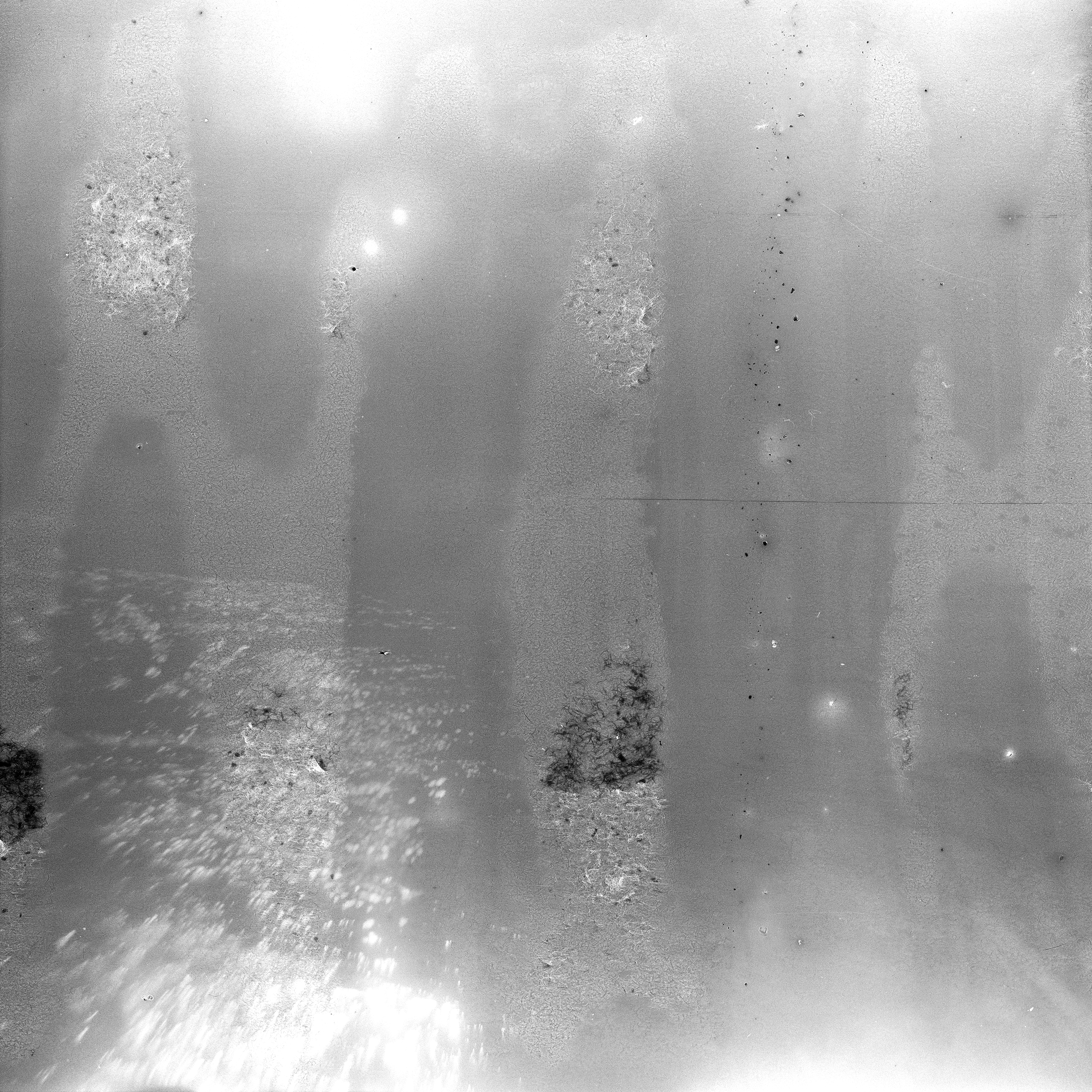![]()
the eye walked out to sea, vi
![]()
the eye walked out to sea, viii
two walks and an ocean, 2019
Black and white medium format film photos recorded in collaboration with the Pacific Ocean,
printed on silk. Single-take sound recording of a walk through Tokyo, along a river and a river’s
ghost, 2:50:25. Speakers, assorted cords and cables.
I came to Tokyo with a plan to trace its urban history in a direct and physical way, using my own
body to map the now-buried path of rivers that had sculpted the city’s development. Tokyo grew
out from and then onto an estuary, where many streams combine to meet the Pacific. These rivers
are now partially contained in canals throughout the city, flowing slowly under the elevated
highways that replaced them as transportation hubs. Each one is eventually fully engulfed by dense
urbanity. Using a combination of old city maps and contemporary guides, I followed the Furukawa
river upstream from the bay. It forked off into Shibuya river, which runs above ground at the edge
of downtown Tokyo until it dips under Shibuya station, one of the busiest public transit hubs in
the world. As I moved further upstream from the bay, into a hilly neighborhood on the
northwestern side of the city, things got quieter. Light mellowed; each sound felt distant from the
others.
Navigating Tokyo was sensory submersion. I found myself seeking out and finding grounding in
bodies of water. I’m not sure what world I was looking for in them, exactly. Maybe I was testing
a hypothesis that the ability to find ritual orientation within fluidity is the most stable (which is to
say, flexible) form of grounding. I went to the beach at some point, Kamakura, just south of Tokyo,
and walked into the ocean. It was almost dusk, cold enough to make my breath catch a little in my
throat. I swam to just beyond where I could stand and stayed there.
These photographs are a documentation of this walk into the ocean. The camera, a leaky and
resilient Holga, walked also. Each image is wetter than the last. The film sticks to itself, dissolves,
tears. Every frame records a landscape that is more distorted than the one before; runnier, muckier,
and in some way more precise.

